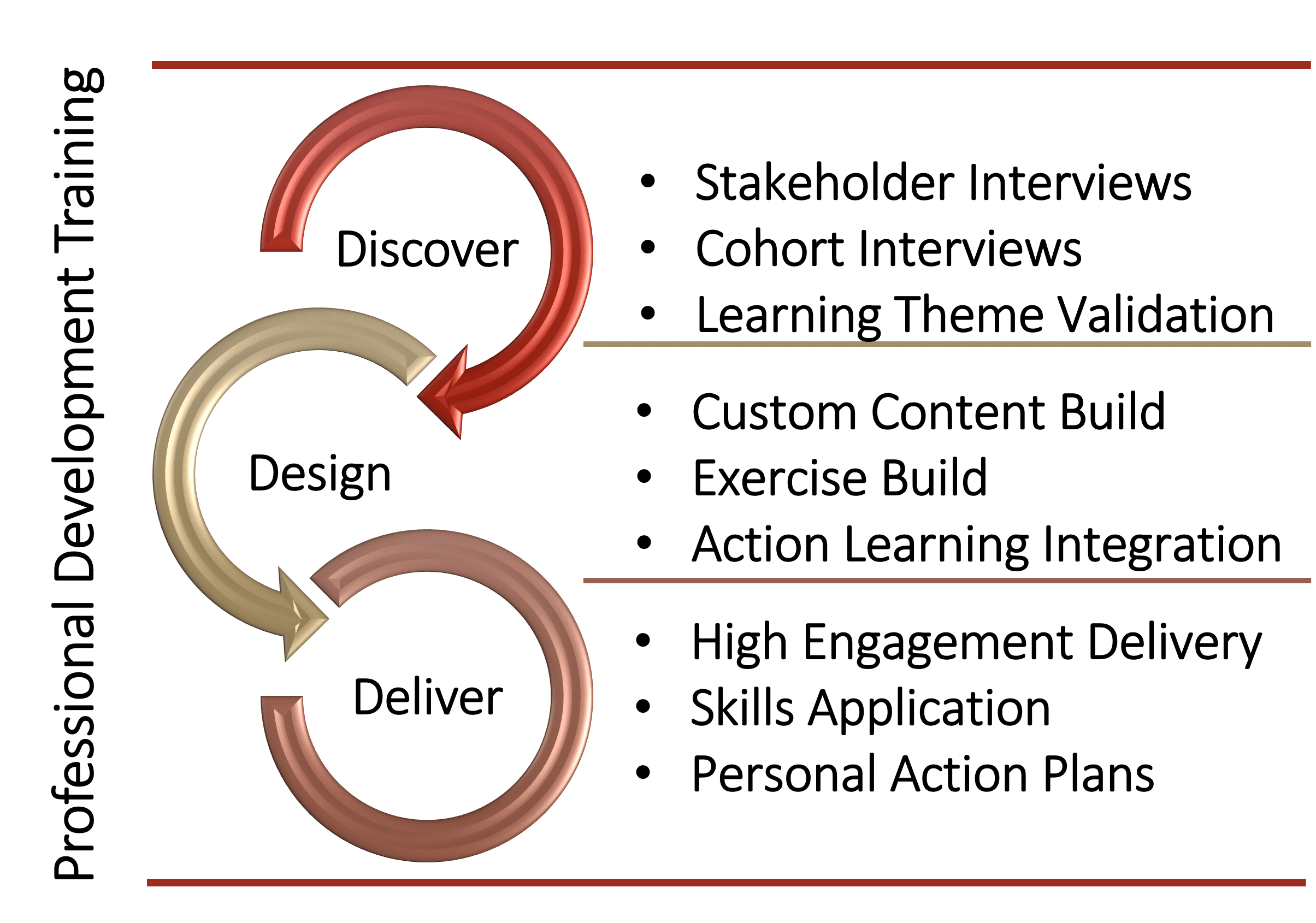Delivery Options
This program is delivered on-site in one full day or virtually in two 3.5-hour sessions.
Course Modules
Value of Feedback
-
Gain higher appreciation for the value of feedback
-
Encourage productivity and employee satisfaction
-
Understand how to observe performance objectively
-
Gain insights into feedback strengths and weaknesses
Performance Observation
-
Objective and useful performance observation
-
Feedback techniques for productivity
-
Dialogue for employee satisfaction
-
Specific competencies focus
Dialogue and Feedback Techniques
-
Encourage productivity through dialogue
-
Employee satisfaction through feedback techniques
-
Objective observation of performance
-
Focusing on specific competencies for feedback
Feedback Strengths and Weaknesses
-
Self-assessment of feedback abilities
-
Validation of facts in feedback
-
Preparation for reaction in feedback sessions
-
Goal creation and result measurement
Who Should Attend
Anyone seeking to enhance their skills related to providing constructive and continuous feedback.
Client-Centric Engagement Model
Professional Development Training
Each learning module in our course descriptions represent 90 minutes of instruction. Your selection of learning modules and sub-topics, preferred delivery modality, and custom design elements (as noted below), will determine the course duration and ultimate “best solution” to meet your unique learning needs. Our proprietary and innovative “4x4” design model, expert level facilitators, and modulated content library is the gateway to high-impact and agile learning experiences that result in immediate skills application.

For the Team
- Teams of eight or more participants, delivered On-Site or Live Online with the option to customize your learning experience.
For the Individual
- Individual learners or cohorts of less than eight participants, delivered Live Online based on prescheduled courses. Contact Us for Scheduling Options>
Customize your Learning Experience
- Customize with instructional design options including scenarios, thought leader questions, and exercises
- Select delivery modality and manage course durations based on content selection
- Mix and match learning modules & sub-topics to create the most highly customized learning experience
- Create learning tracks by linking courses & learning modules with connective application exercises over a predetermined timeline
- Support content with correlating Research Articles
- Enhance skills application with Performance Coaching
- Earn select industry and academic accreditations
- Organizational Learning & Development (L&D) Framework Best Practice
- Integrate Digital Resources – Thought Leader Interviews – Insights Podcast
Join the ranks of leading organizations that have partnered with AMS to drive innovation, improve performance, and achieve sustainable success. Let’s transform together, your journey to excellence starts here.